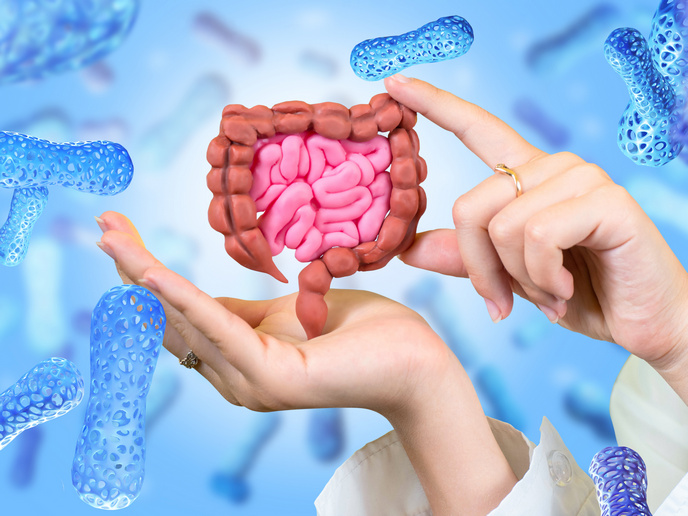Why you should eat your vegetables
A new study(opens in new window) published in the journal ‘Gut Microbes’ has provided the first evidence of a link between the plant and the human gut microbiome. Supported by the EU-funded HEDIMED(opens in new window) project, the study shows that eating fruit and vegetables increases bacterial diversity in the gut, which humans need to stay healthy.
The importance of bacteria in produce
“Fruits and vegetables contain millions of bacterial cells, some of which can inhabit our gut and contribute to the overall diversity of gut bacteria,” confirms lead author Dr Wisnu Adi Wicaksono of HEDIMED project partner Graz University of Technology (TU Graz), Austria, in a news item(opens in new window) posted on ‘Nutrition Insight’. The microbiologist explains that some bacterial genes found in fresh fruit and vegetables are important for our health because “they are involved in the production of vitamin B12 and short-chain fatty acids (SCFA).” He goes on to clarify the importance of these nutrients: “Vitamin B12 acts as a cofactor, aiding in multiple metabolic pathways in humans, while SCFA can help improve the integrity of the gut barrier and regulate the immune system.” The research team reconstructed representative genomes of fruit- and vegetable-associated bacteria from 156 fruit and vegetable metagenomes. They then used the reconstructed genomes to investigate the prevalence of associated bacteria in close to 2 500 publicly available gut metagenomes. They found that bacterial genes involved in the production of vitamin B12 and SCFA were consistently present in the human gut, albeit at low levels (about 2.2 %). This quantity was influenced by the individual’s age, how often they ate vegetables and how diverse their plant consumption was. “Fresh produce, including its microbiome, has the potential to influence the composition of the gut microbiome,” observes Dr Wicaksono. “By identifying personalized diets that can modify the microbiome or the metabolites produced by the microbiome, we may be able to prevent or control disease outcomes.” He goes on to emphasise: “This is particularly significant during early life when the immune system is developing. Additionally, fruits and vegetables-associated bacteria have shown promise as emerging probiotics in various applications.” As the news item notes, this suggests that consuming fresh fruit and vegetables aids the development of a person’s immune system during their first few years of life as the intestinal microbiome develops. Furthermore, good gut bacteria diversity enhances the body’s resilience throughout a person’s life. “It simply influences everything,” remarks TU Graz Prof. Dr Gabriele Berg, who is the study’s senior author. “Diversity influences the resilience of the whole organism; higher diversity conveys more resilience.” The HEDIMED (Human Exposomic Determinants of Immune Mediated Diseases) study provides conclusive proof – for the very first time – that microorganisms from fruits and vegetables can colonise the human gut. Because of this connection, practices such as farming, breeding and post-harvest treatments that affect these microorganisms may also directly or indirectly affect the composition of microorganisms in the gut. Food for thought, given that human activities have already been linked to changes in the diversity of microorganisms in plants, changes that ultimately impact our health. For more information, please see: HEDIMED project website(opens in new window)



